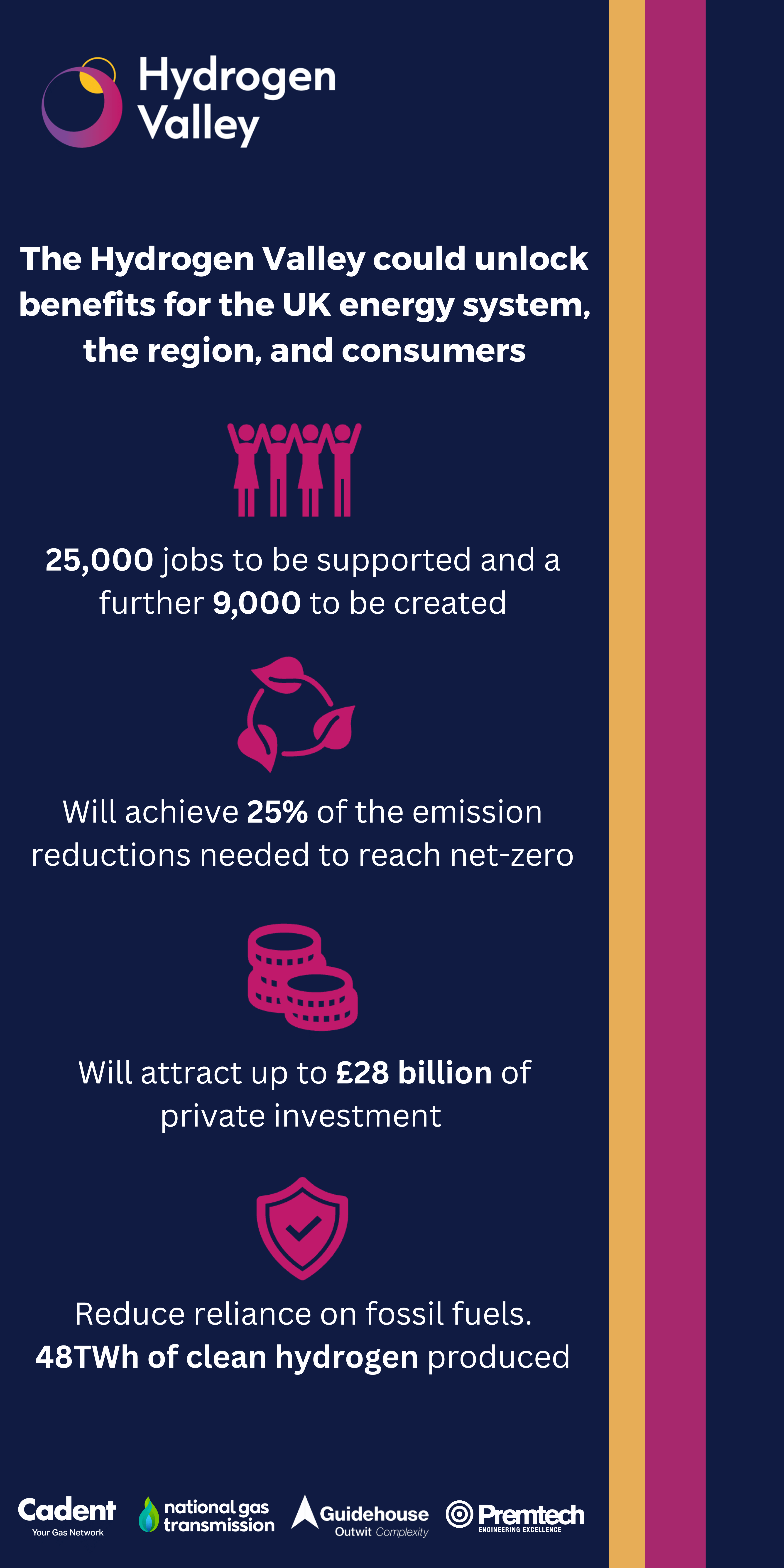A feasibility study conducted by two of Britain’s leading gas networks has shown that a hydrogen economy in the West Midlands and East of England could:
The Hydrogen Valley project is delivered by Cadent and National Gas Transmission and is supported by more than 30 regional stakeholders, including PEPSICO, Birmingham Airport, CEMEX, British Sugar, RWE, West Midlands Combined Authority, and others from across the private and public sector.
The Hydrogen Valley is an East-West corridor that encompasses Norfolk in the east to Shropshire in the West, comprised of the administrative counties of Bedfordshire, Cambridgeshire, Lincolnshire, Milton Keynes, Norfolk, Northamptonshire, Peterborough, Staffordshire, Stoke-on-Trent, Telford and Wrekin, and the West Midlands.
The vision for the Hydrogen Valley is being set out at a House of Commons launch event, hosted by MP Bim Afolami this afternoon (29/03/2023). The event will bring together more than a hundred representatives from politics, industry, academia and business to outline their commitment to collaborate, to accelerate decarbonisation and to bring the benefits of a hydrogen economy to the West Midlands and East of England.
Initial research identified that the Hydrogen Valley is home to major operations in power generation, automotive, manufacturing, metal processing, and building materials, employing tens of thousands of people collectively.
Simon Richards, chief finance and sustainability officer for Birmingham Airport, said:
“We expect zero-emissions, hydrogen-powered air travel to become a reality in the next few years. The more brains and organisations involved, the sooner game-changing advances like this will become a reality.”
Helen Boyle, Head of Regional Development at Cadent, said:
"With the launch of the Hydrogen Valley study, we are nearer to understanding the role that hydrogen could play in delivering a net zero energy system while boosting local economies, communities and creating a resilient system that enhances the UK's energy security."
Danielle Stewart, Hydrogen Project Director at National Gas Transmission, said:
“We are looking forward to sharing the results of the feasibility study, which has enabled us to explore how we can maximise the value of existing UK infrastructure and give consumers fair access to cost effective low carbon hydrogen.”
ENDS
To read the Feasibility Report

Cadent is the UK’s largest gas distribution network with a 200-year legacy. We are in a unique position to build on strong foundations whilst encouraging the curiosity to think differently and the courage to embrace change. Day to day we continue to operate, maintain and innovate the UK’s largest gas network, transporting gas safely and protecting people in an emergency. Our skilled engineers and specialists remain committed to the communities we serve, working day and night to ensure gas reaches 11 million homes from Cumbria to North London and the Welsh Borders to East Anglia, to keep your energy flowing.
Here at Cadent we support the Government’s plans to reach Net Zero by 2050. That means we’re backing the introduction of hydrogen as a low carbon alternative to natural gas for the future. We know people love the controllability of gas and, with our network already in place, it makes sense to switch to the lower carbon alternative offered by hydrogen, which we believe can keep homes and businesses warm for generations to come.
Cadent manages the national gas emergency service free phone line on behalf of the gas industry - 0800 111 999*
Cadent Gas Ltd is owned by a consortium of global investors.
*All calls are recorded and may be monitored.